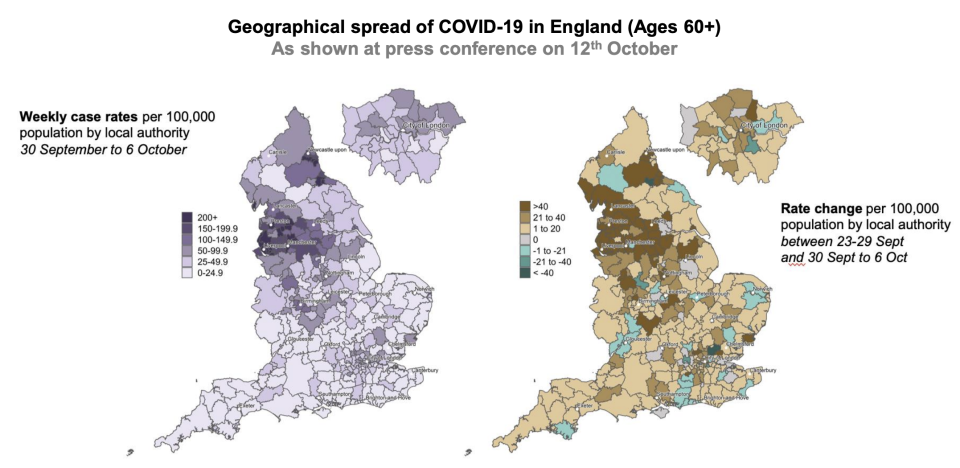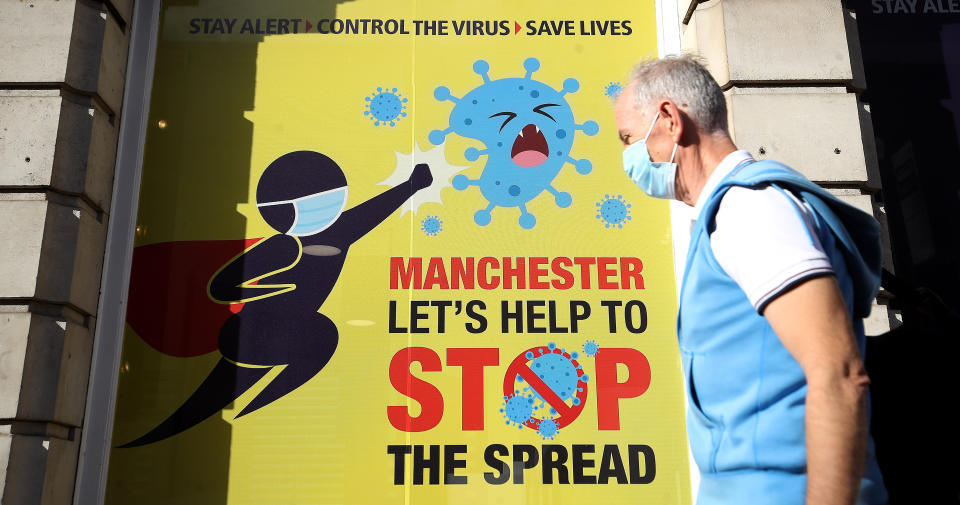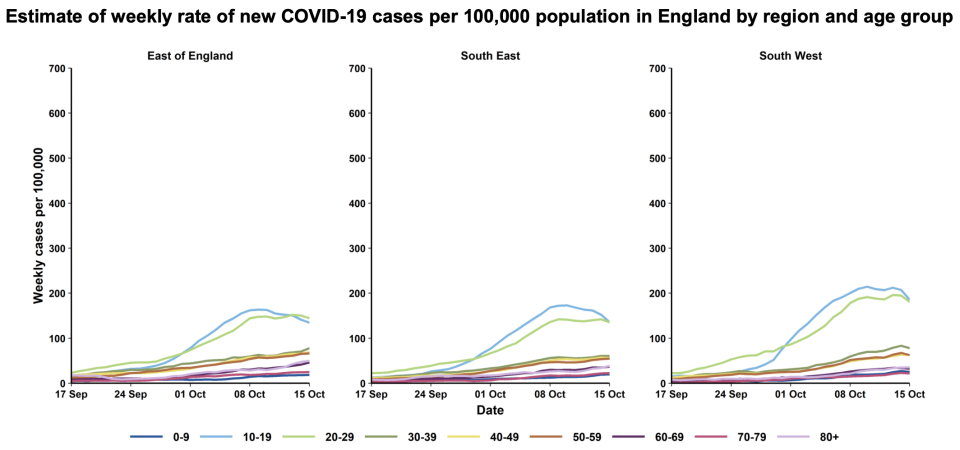'We can't afford to let them die': Moment Jonathan Van Tam says elderly must be protected at all costs
Watch: Jonathan Van-Tam issues stark warning over social distancing
Deputy chief medical officer Jonathan Van-Tam has warned that stricter social distancing measures are needed to protect the elderly as a second wave of coronavirus sweeps across England.
Speaking at a Downing Street press conference on Tuesday evening, Prof Van Tam said the R rate is currently above one across all regions despite the country "running with the brakes partially on".
Asked about the need for social distancing measures he said: "We just can't afford just to let our elderly die and we can't afford to allow our NHS to be completely consumed by looking after Covid so it can't do its other business as usual work.
"We'll have to take as tough measures as necessary to stop that,” he added, “The typical lag time between doing something and beginning to see a discernible effect is two to three weeks.


"Just to make a point that the prime minister made, we're running now with the brakes partially on and the R rate is 1.3 to 1.5 according to the latest estimates.
"We can't take the brake off on this and we may have push on the pedal a little harder to get it back under control."
Despite the stark warning, Prof Van-Tam said he does not currently support a nationwide "circuit-breaker" lockdown to curb spread of the virus and advocated a phased approach instead.
Read more: Lockdown rules clear and apply to all, says government medic
"We are trying to walk a very fine line between getting the virus under control in areas where it is out of control and incurring the minimum amount of economic damage in doing so," he continued.
"In areas where it is out of control hard measures are needed.
"But do I think right now it is appropriate to insist on those similar hard measures in, for example, the South West of England or Kent, where levels of the disease are very, very much lower than in the North of England - the national firebreak you talked about? No, I don't think that is right.


"I don't think that is consistent with the epidemiological picture that we are seeing."
Prof Van Tam also warned that the virus has the potential to “inflict really massive mortality” among elderly populations, as he warned about the danger of visiting older relatives.
He went on: "But the unfortunate and horrible truth about this virus is that when it gets into care homes, it can inflict really massive mortality, very quickly, and the staff that go into care homes are being regularly tested.
"We can't get them to live in the care home as well, so they are in contact with the community, and there is this constant tension between wanting to see relatives and not wanting to witness catastrophic mortality in these care homes.
"I am hoping that some of the pilots with rapid and novel testing methods will eventually lead to a breakthrough so that we can be more relaxed about visiting residents and our families in care homes in a much safer way."
"For now it is a very difficult situation."
Coronavirus: what happened today
Click here to sign up to the latest news and information with our daily Catch-up newsletter

 Yahoo News
Yahoo News 

